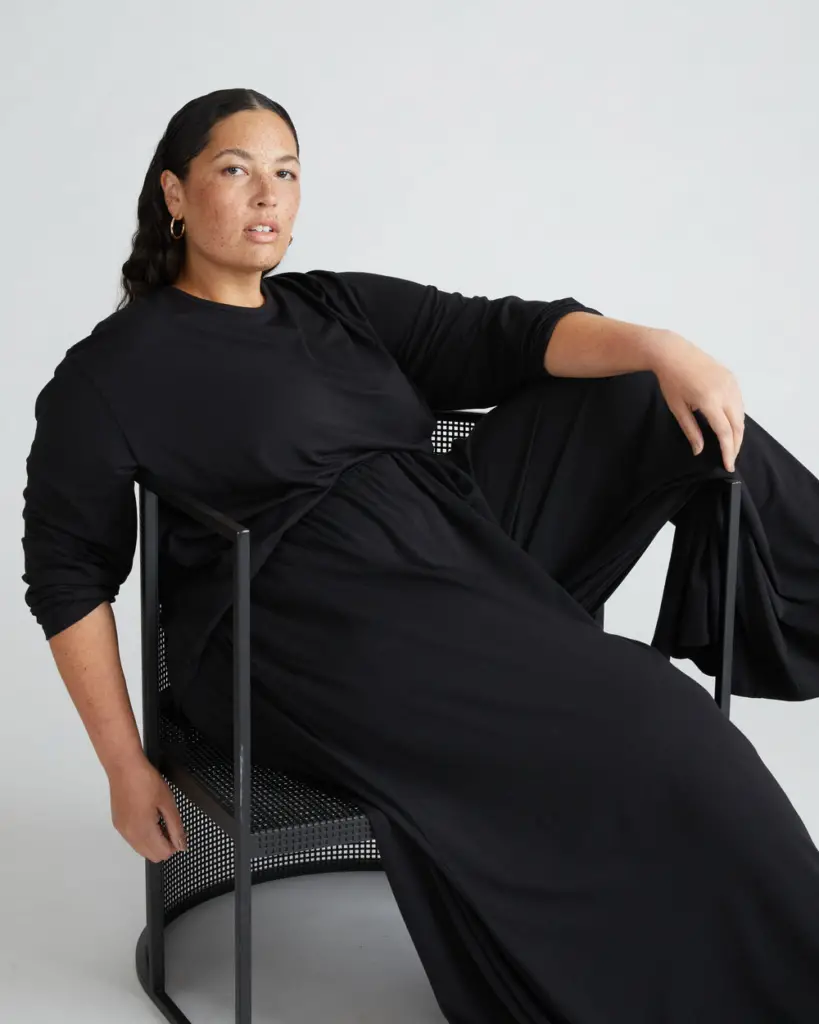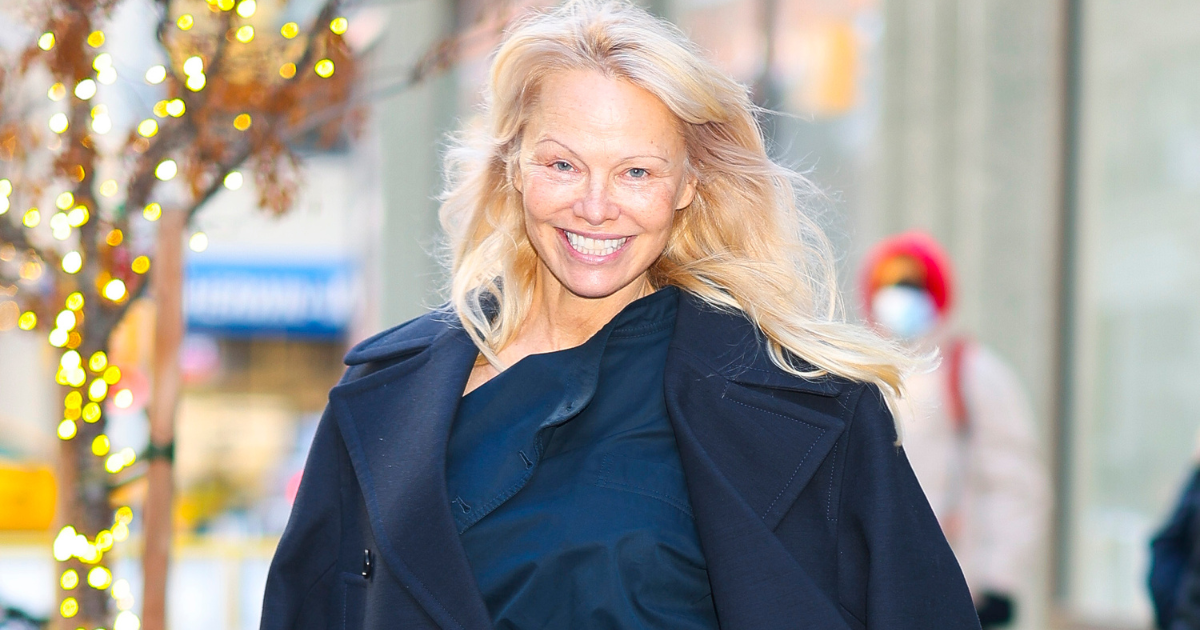Despite an annual expenditure exceeding $32 billion on apparel in the U.S. alone, the plus size consumer continues to be treated as a secondary consideration by the majority of the mainstream fashion industry. According to data from the NPD Group, the plus size fashion market has expanded more rapidly than the straight size categories following the pandemic. However, representation in the industry remains minimal, options are limited, and visibility in marketing campaigns is still noticeably lacking.
As someone who experiences this daily (we see you, sis), you understand the frustration of having to settle for less. With countless brands flooding the market with styles designed for sizes 0 to 12, a significant gap exists for anyone above a size 14. The industry’s failure to adequately address the plus size fashion market is not just an inconvenience; it’s a considerable financial oversight.

Examining the Growth of the Plus Size Fashion Industry: Important Financial Insights
As reported by Statista, the U.S. women’s plus size apparel market was valued at $32.6 billion in 2021 and is anticipated to soar to $47.5 billion by 2026. While the overall apparel sales are set to increase by approximately 2% annually, the plus size category is projected to experience a much more robust growth rate of 5.9% per year (according to Allied Market Research).
This indicates that our purchasing power is on the table, and brands that are attuned to this market are already reaping significant rewards.
Catherine Moellering from the TOBE Report succinctly stated:
“There are a lot of dollars in these consumers’ wallets that aren’t getting counted. If you build it, they will come.”
…And We Have Arrived in Style.

Retailers such as Torrid, Lane Bryant, Ashley Stewart, and Eloquii (which made a strong comeback after a brief hiatus) have demonstrated that catering to the plus size consumer is not merely a public relations move—it’s a savvy business strategy. Online platforms like Dia & Co, OneStopPlus, and Girlfriend Collective are also transforming the shopping experience for plus size consumers by emphasizing inclusivity, sustainability, and stylish options.
However, there remains significant work to be done, especially in the realms of plus size luxury and plus size contemporary fashion. Despite the impressive offerings from designers like JIBRI, Sante Grace, Tamara Malas, GIA/IRL, Pari Passu, byVinnik, and BAACAL, the luxury plus size market remains largely underserved and underfunded. Only a handful of traditional luxury brands, such as Marina Rinaldi and Elena Mirò, have consistently prioritized the needs of curvier customers—and they are thriving on an international scale.
So, what is preventing the rest of the industry from catching up?
Unpacking the Barriers: Why the Plus Size Market Is Often Overlooked
Let’s clarify this: Designing for plus size isn’t merely a matter of “making it larger.” It necessitates specialized skills, expertise in pattern grading, and a genuine willingness to invest in a body type that has not historically been the focus of design teams. However, let’s not kid ourselves—brands have the capability to figure this out; they simply haven’t made it a priority.
In contrast, the few brands that do prioritize this market have garnered our loyalty, our financial support, and our enthusiastic word-of-mouth recommendations.

We must also acknowledge the importance of the in-person shopping experience. While online shopping has made it possible to access options we once only dreamed of—ranging from glamorous gowns to stylish activewear—there is still unparalleled value in the ability to try on garments and experience that immediate gratification of leaving the store with your purchase. This is why we initiated our Plus Directory. Retailers that invest in physical store experiences (shout out to Savage x Fenty, Good American, and Universal Standard) are elevating what it means to shop while curvy and redefining industry standards.
Strategic Steps to Successfully Enter the Plus Size Fashion Market
For every brand aiming to engage with this lucrative market, here’s the best advice:
Begin with intention, respect, and strength.
There’s no need to launch a massive 100-piece collection overnight. However, you must ensure that we feel acknowledged and represented. Start with a capsule collection. Offer a select few standout pieces in extended sizes. Ensure that both fit and fabric quality meet expectations (we can tell when you cut corners). Involve us in your design process, listen to feedback from fit testers, and—this is crucial—make sure you showcase us in your marketing efforts.
Representation fosters trust. Trust creates loyalty. And loyalty builds empires.
(Just ask Lena Bryant.)
Identifying the Brands Leading the Way in Plus Size Fashion

Brands such as ASOS Curve, Good American, Universal Standard, and Eloquii may not be flawless, but they excel in one key area: they listen, adapt, and implement changes, proving that style, fit, and representation can coexist harmoniously. These brands go beyond simply providing extended sizing; they are in the process of constructing inclusive communities.
Conversely, brands that fail to address this demand are becoming cautionary tales about the consequences of neglecting a passionate, underserved, fashion-savvy consumer base. (RIP WHBM’s plus size endeavor—may others draw lessons from your missteps.)
Closing Thoughts: Embracing Change in the Plus Size Fashion Landscape
If you’re involved in the fashion industry and are not catering to plus size customers, you’re not truly participating in fashion—you’re in denial.
The plus size fashion industry and market are far from “niche.” It represents the majority. Over 68% of American women wear a size 14 or higher (according to the CDC). The demand is robust, loyal, and financially rewarding.
To every designer, buyer, investor, and brand executive reading this: The time to cater to us is now. We don’t merely want more; we deserve more.
And to all the curvy individuals out there? Continue to demand what you deserve. Shop smart. And keep being unapologetically YOU.

Here you can find the original article; the photos and images used in our article also come from this source. We are not their authors; they have been used solely for informational purposes with proper attribution to their original source.






